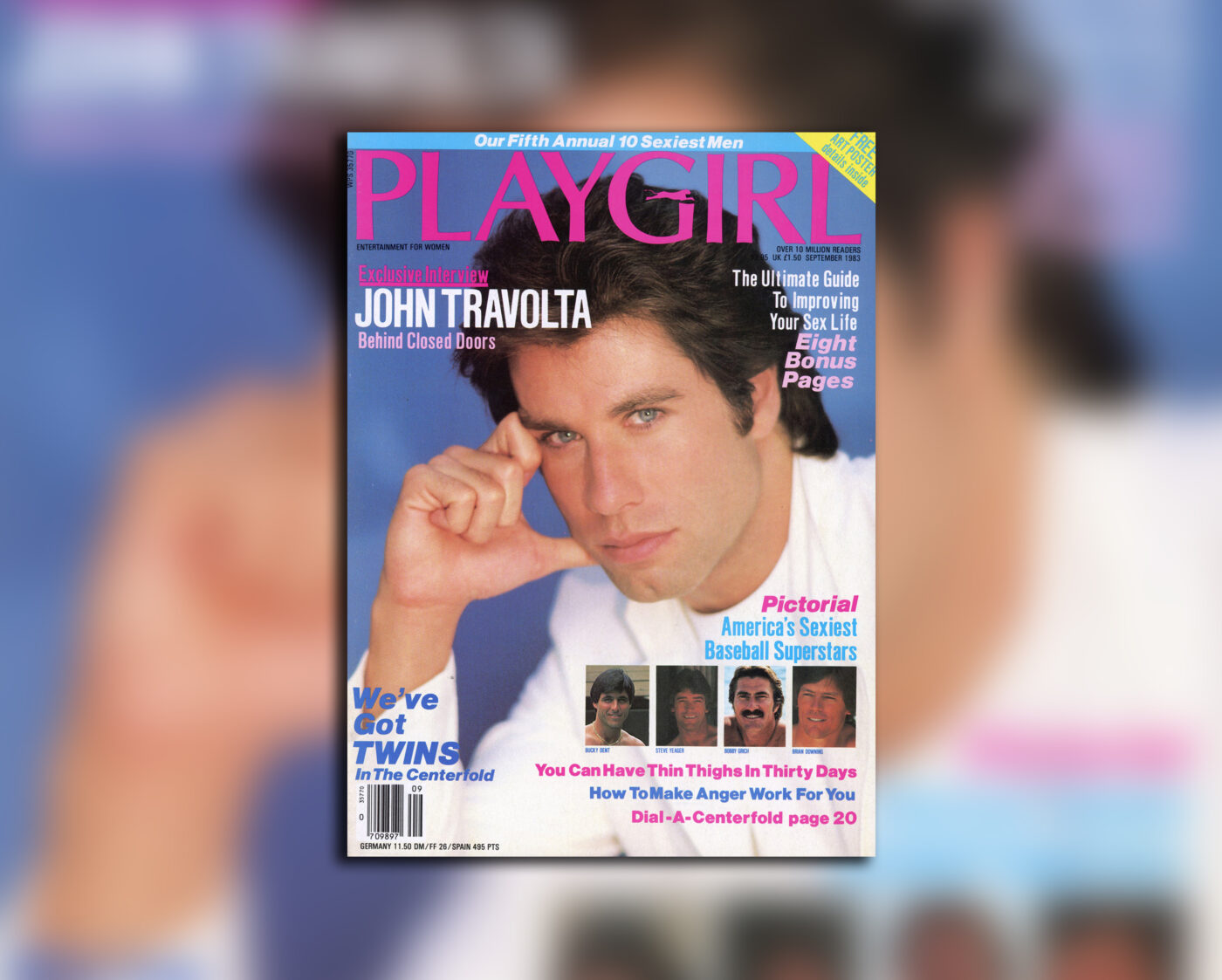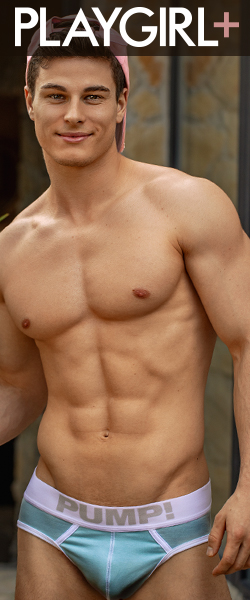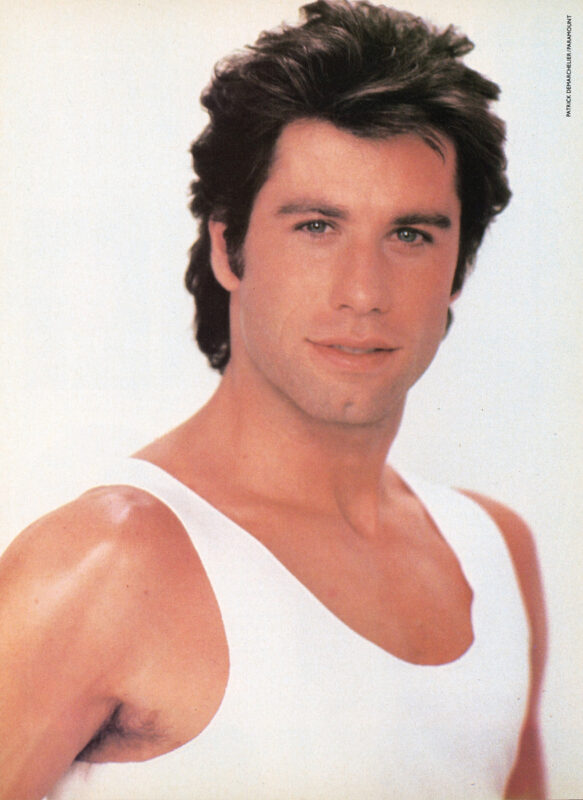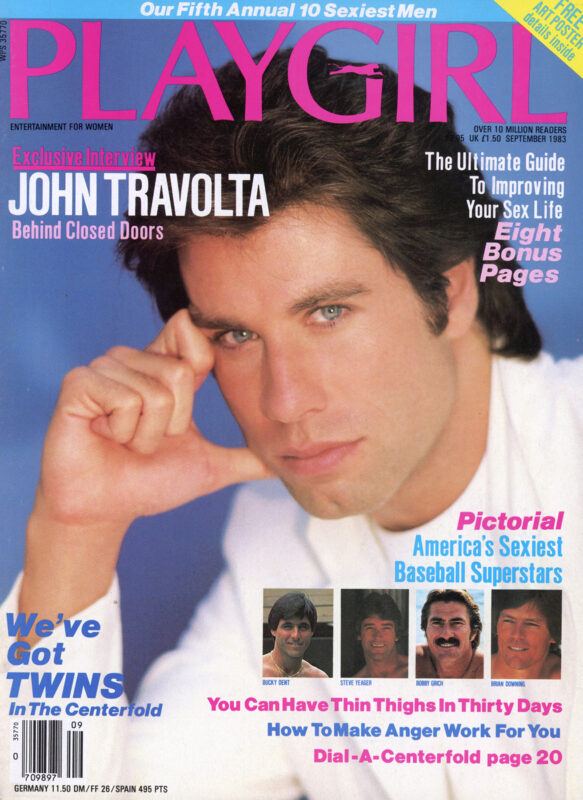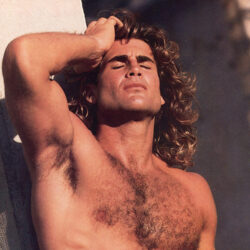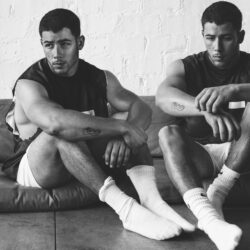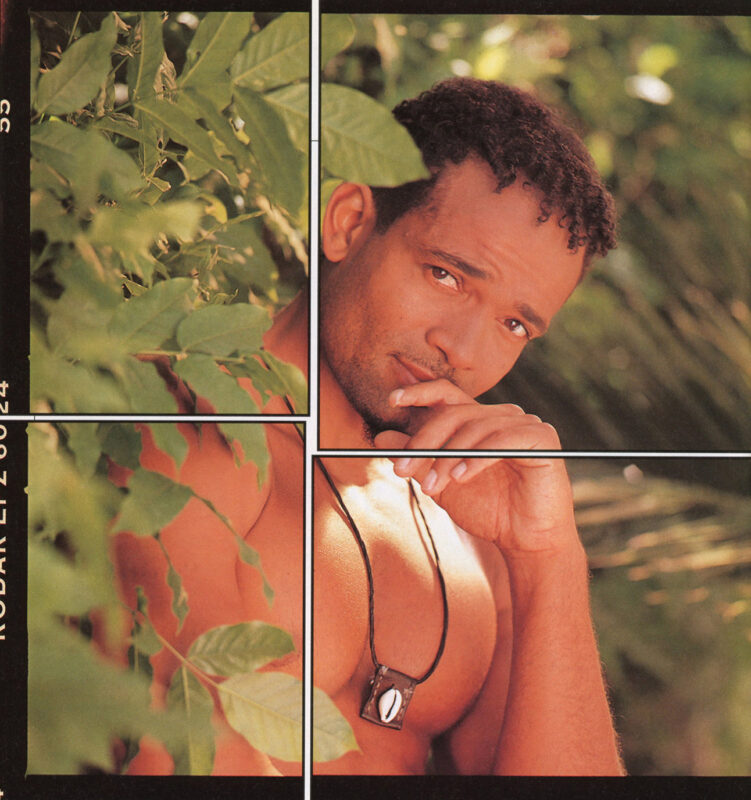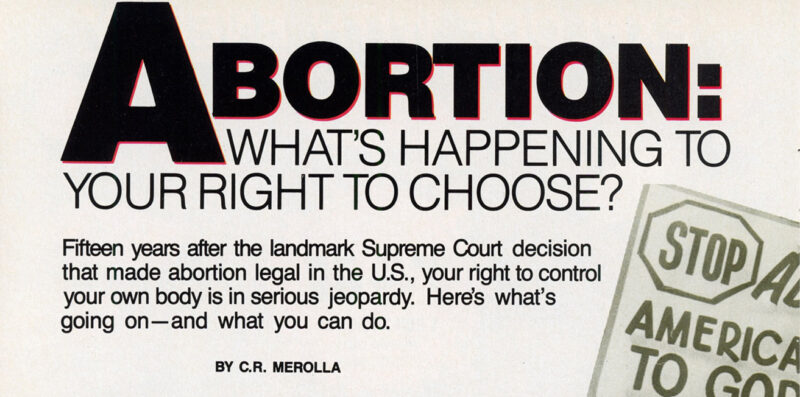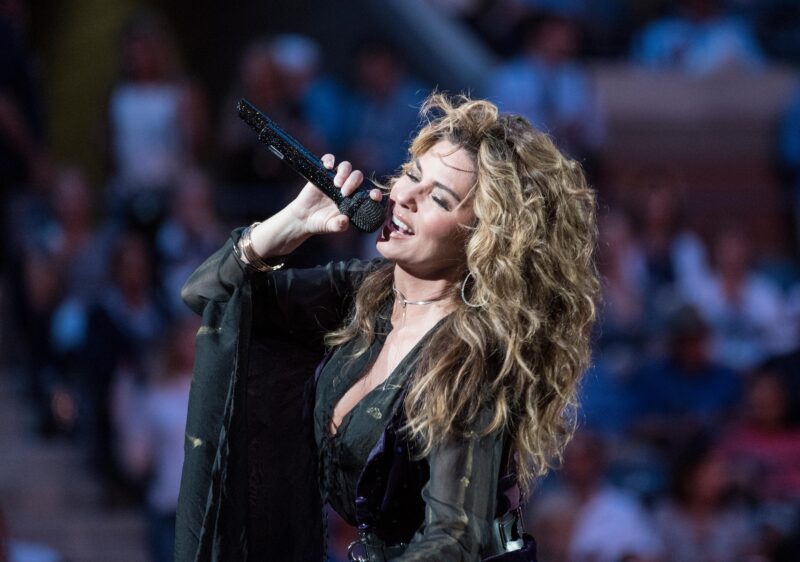The first word that comes to mind upon meeting John Travolta is “charisma.” It’s not so much because of Travolta’s body, which, after months of training under the supervision of Sylvester Stallone, is perfectly toned, muscular and graceful—a body to stop sculptors, among others, dead in their tracks.
It’s not really a matter of Travolta’s clothes, though they help, especially the black leather jacket with turned-up collar that he wore the first time I saw him, just right for Travolta’s Italian, street-dude good looks. The half-inch dimple in his chin lends a certain drama, and his smile, one of the great, knockout smiles of this or any other generation, plays its part.
No, the real source and glory of Travolta’s charisma is his eyes, amazing eyes the likes of which I’ve never quite seen—quicksilver, blue green eyes that flicker with a life of their own and that immediately set him apart as someone special, glamorous not because of movies and wealth and fame, but naturally so with the ultimate glamour of transparency. Travolta is all there in those eyes, with their pinpoints of vulnerability and dreaminess, insecurity and sexy charm. He wins you over immediately, his pure charisma somehow evidence of a level of risk and honesty that explains his talent and justifies his fame.
The fame was easy to predict. Travolta was Travolta. That night he offered Travolta—a 16-year-old sophomore at Dwight Morrow High School in Englewood, New Jersey—a deal and invited him to New York.
Almost immediately Travolta landed lucrative work in commercials. A supporting role in the road show of Grease followed, along with bit parts in the Broadway musical Over Here (which starred The Andrews Sisters) and a 1975 horror flick, The Devil’s Rain, with Ernest Borgnine. Just a few months later Travolta was cast as Vinnie Barbarino in Welcome Back, Kotler, and suddenly, next to The Fonz, he was TV’s hottest star.
With Saturday Night Fever (1978), of course, Travolta was launched as a superstar. The film, which gave meaning to disco, was the visceral triumph of the year, and Travolta was stunning, transcendent, a sensation, picking up a well-deserved Academy Award nomination for Best Actor. The movie version of Grease, also a huge success, quickly followed, and one could only wonder what Travolta would try for an encore.
Unfortunately, he tried a nonmusical role in Moment by Moment and was disappointing with Lily Tomlin. The movie, delivered on a tidal wave of hype, disappeared overnight, but it was the least of Travolta’s woes. Within a year’s time, both his girlfriend, 41-year-old actress Diana Hyland, and his mother, to whom he was extremely close, died. Travolta, on the ropes, put a hold on his career, dropping out of American Gigolo at the last moment, settling into a Santa Barbara, California, ranch and spending his time studying etiquette, French and violin, and learning how to fly.
His next movie, however, Urban Cowboy, reaffirmed his magnetic screen presence and drawing power, and Stayin’ Alive, the sequel to Saturday Night Fever, will showcase Travolta’s flashing, dancing brilliance once more.
I met with Travolta three times, briefly first at one of the Los Angeles locations of Stayin’ Alive, and then twice at the Westwood Marquis, a hotel near the UCLA campus, where Travolta was quartered while shooting an upcoming film with Olivia Newton-John. On all three occasions he was quietly responsive, his gorgeous, manly features enhanced by a delicate, sensitive, almost fragile air. Each time, he wore jeans, boots and a sport shirt with the sleeves folded up above the biceps, fifties-style. I began by asking Travolta if there was any kind of informal costume he tended to wear.
TRAVOLTA: Yeah, I do get into a uniform situation. It’s the path of least resistance. I’ll bring you up-to-date on my present uniform—
PLAYGIRL: By all means.
[Travolta scurries around the suite, rummaging for clothes.]
TRAVOLTA: I have these jeans, and there’s a black pair just like them. . .
PLAYGIRL: Jeans that anyone could buy in a store?
TRAVOLTA: NO, these are the jeans I wore in Stayin’ Alive. I did the same thing with Urban Cowboy, and I wore those jeans out. I didn’t take them off for two years.
PLAYGIRL: You’re joking.
TRAVOLTA: NO, I swear to you—
PLAYGIRL: You mean, you had a closetful?
TRAVOLTA: TWO pair, and I wore them for two years, until the butt and the crotch were all worn out, and I had patches inside.
PLAYGIRL: Didn’t people give you funny looks, considering who you are, wearing shabby jeans?
TRAVOLTA: NO, because I’d wear, like, a suede sports jacket over them, with a sports shirt, so it looked sort of hip, in a sense, because I had one piece that was really good.
PLAYGIRL: But why wear the pants from the movie for so long? Is it because you identify with the look and want to carry it offscreen?
TRAVOLTA: Yes, it is. You see it on the screen looking good, and you say to yourself: now I have a second view of it, and I’ve confirmed it looks good, so therefore I have confidence in wearing it.
PLAYGIRL: OK, so complete your uniform.
TRAVOLTA: YOU see these shirts? [Travolta displays a collection of shirts, identical to the one he is wearing, except for the color.] They’re sort of bowling shirts from the fifties. I like this. I bought five of them—black, white, turquoise, coming back again, and I love the big earrings. There’s even some fifties Avedon high-tech overtones in some of the outfits, like here, hold on a second. . . . [Travolta goes to his bedroom, then emerges, paging through a copy of Vogue.) Like this, it’s sexy, it’s good-looking, and there’s a beautiful bathing suit—so sexy.
PLAYGIRL: You read Vogue before you go to bed?
TRAVOLTA: Marilu and I bought a bunch of magazines, and I said, “Get a Vogue,” so I could look at it too.
PLAYGIRL: OK, you look at Vogue, you’re tuned into high fashion, and you still wear jeans nearly every day. Why?
TRAVOLTA: Because in order to really look good you have to be less conscious of the clothing, and I’m not self-conscious at all in this outfit. Whereas if I wore a pair of dress slacks, it would look chic, but I’m not into looking chic. I’m not comfortable about it.
PL AYGIRL: What would be the least comfortable thing for you to wear?
TRAVOLTA: [without hesitation and laughing] Golf clothes.
PLAYGIRL: Why is that? Is it the idea of golfing, the lifestyle?
TRAVOLTA: Oh no, golfing is sort of a glamorous lifestyle. It’s just, well, polyester. Even though some of the clothing in Saturday Night Fever was polyester, that’s not my personal style, and to me golf takes it one step further and makes polyester clothing really unattractive—with big lapels and snapover things accentuating it. I find that clownlike. And then you see the big gold jewelry, the guys at the bar.
PLAYGIRL: Most people who wear that stuff tend to be older. I wonder why, when some people get older, they seem to lose their taste.
TRAVOLTA: Well, again, I think you go for the path of least resistance. For instance, that clothing is very easily kept up. If that guy takes his slacks off and puts them in the corner and he has nothing else the next day, they’re fine!
PLAYGIRL: The outfit will completely heal itself.
TRAVOLTA: Exactly. It’s remarkable stuff. The only thing that bothers me is that if you catch on fire, it’ll seal you.
PLAYGIRL: You mentioned that you’re seeing Marilu. Are the two of you a serious item?
TRAVOLTA: I’m at a point in my life, in all honesty, where I’m seeing Marilu more than anyone else, but . . .
PLAYGIRL: You’ve seen her off and on for a long time.
TRAVOLTA: Well, she was married for two years—she just got divorced—so I’ve been seeing her for the last five months. Before that, it was Debra Winger for a while.
PLAYGIRL: Is that over? …
… Continue reading on Playgirl+

